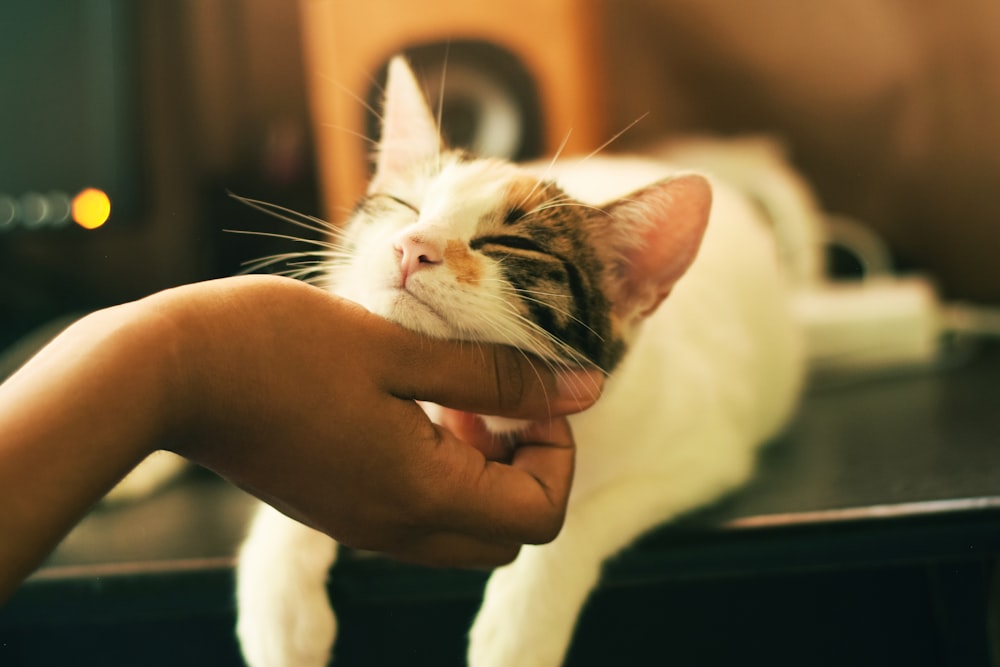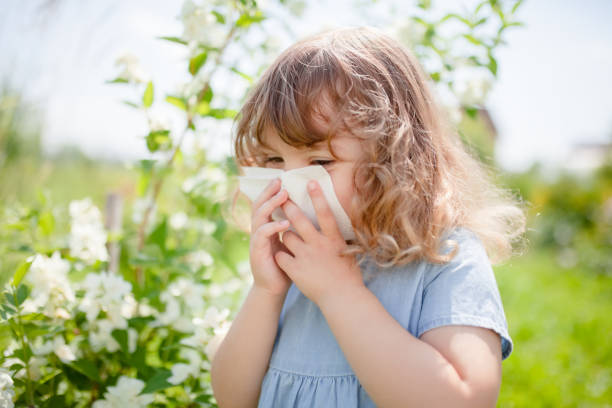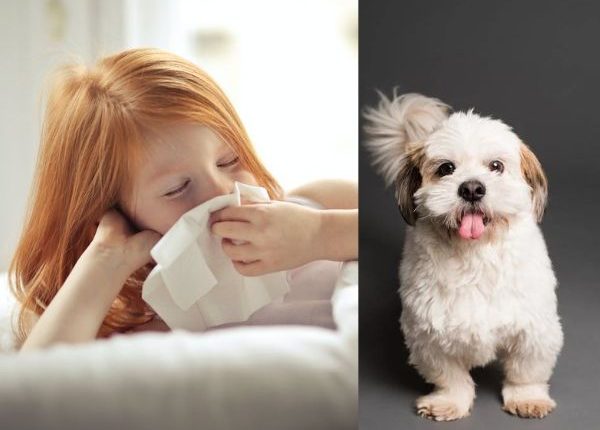“Protecting Kids From Pet Allergies” – Pets are a great addition to any family. They provide love, companionship, and joy to our lives. However, for some children, pets can also trigger allergies, leading to symptoms such as sneezing, runny nose, itchy eyes, and skin rashes. As a parent, it is important to know how to protect your kids from pet allergies and create a safe and healthy environment for your family. In this article, we will provide you with practical tips and advice on protecting Kids from pet allergies.
Also read | Are Chicken Nuggets Healthy To Eat- Can I Give My Kids?
Types Of Pet Allergies
There are two types of pet allergies: those caused by dander (dead skin cells) and those caused by proteins found in urine, saliva, and other secretions. Dander is the primary allergy-triggering substance for most people with pet allergies. Pet proteins are more likely to trigger respiratory symptoms, such as wheezing and difficulty breathing.
Causes of Pet Allergies in Kids
There are many potential causes of pet allergies in kids, and it can be difficult to identify the exact source of the problem. However, there are a few common culprits that you should be aware of:
Dust mites: Dust mites are tiny creatures that live in dust and other particles. They are a common cause of allergies, and can be found in both homes with pets and those without.
Pollen: Pollen is another common allergen, and is often carried into the home on your pet’s fur. If you have a pet and your child is allergic to pollen, it’s important to keep them away from each other as much as possible.
Dander: Dander is the name for the flakes of skin that come off an animal’s body. It’s a common cause of allergies, and can be difficult to remove from your home completely. However, vacuuming regularly and using air filters can help reduce the amount of dander in your home.
These are just a few of the most common causes of pet allergies in kids. If you suspect that your child may be allergic to something in their environment, it’s important to talk to their doctor about testing options.

Also read | 15 Signs Of A Happy Child That Are Noticeable
Symptoms of Pet Allergies in Kids
When it comes to pet allergies in kids, the symptoms can vary depending on the severity of the allergy. However, some common symptoms include:
-wheezing
-coughing
-sneezing
-red, itchy eyes
-runny nose
-skin rash or hives
If your child is experiencing any of these symptoms, it’s important to see a doctor right away to get a proper diagnosis. Once you know for sure that your child is allergic to pets, there are a few things you can do to help reduce their symptoms and make them more comfortable.
Protecting Kids From Pet Allergies: Practical Tips And Advice

1. Choose the Right Pet:
Not all pets are created equal when it comes to allergies. Some pets are hypoallergenic, which means they produce fewer allergens than other pets. Some of the best hypoallergenic pets include:
- Dogs: Poodle, Bichon Frise, Schnauzer, and Portuguese Water Dog.
- Cats: Sphinx, Russian Blue, Bengal, and Siamese.
2. Keep Your Home Clean
Regular cleaning is essential to reduce allergens in your home. Here are some tips to keep your home clean:
- Vacuum carpets, rugs, and furniture regularly.
- Use a HEPA filter in your vacuum cleaner and air purifier.
- Wash bedding and curtains in hot water.
- Dust surfaces with a damp cloth.
- Keep your home humidity between 30-50%.
3. Teach Your Kids Good Hygiene:
Teaching your kids good hygiene can help prevent allergic reactions. Here are some tips:
- Wash your hands frequently, especially after touching your pet.
- Avoid touching your eyes, nose, and mouth after touching your pet.
- Keep your pet out of your kids’ bedrooms, furnitures and play areas.
- Teach your kids to cover their mouth and nose when sneezing or coughing.
4. Consult Your Doctor:
If your child is experiencing allergic symptoms, consult your doctor. Your doctor may recommend allergy medication or immunotherapy to help reduce symptoms. Your doctor may also advise you on the best ways to reduce allergens in your home.
Also read | Is coconut oil good for infant eczema? Other natural remedies
Ways to Manage Pet Allergy Symptoms in Children
There are a number of ways that you can manage pet allergies in children. The most important thing is to try and avoid exposure to the allergen as much as possible. This means keeping pets out of the child’s bedroom and making sure that they are not in contact with any pet hair or dander. If possible, it also helps to keep the house clean and free of pet hair.
If your child does come into contact with a pet, you should make sure that they wash their hands straight away. You should also monitor them for any signs of an allergic reaction, such as wheezing, coughing, or difficulty breathing. If you think that your child is having an allergic reaction, you should seek medical help immediately.

There are also a number of medication options available that can help to relieve the symptoms of pet allergies in children. These include antihistamines and corticosteroids. If your child is particularly severe, they may also be prescribed immunotherapy injections, which can help to reduce their sensitivity to the allergen over time.
Natural Remedies for Pet Allergies in Kids
One of the most effective natural remedies is quercetin. Quercetin is a plant-based compound that has been shown to reduce histamine levels in the body and provide relief from allergy symptoms. It can be found in supplement form or in foods such as onions, apples, and blackberries.
Another helpful remedy is probiotics. Probiotics contain live bacteria that can help restore balance to the gut microbiome and reduce inflammation throughout the body. They can be found in supplement form or in fermented foods such as yogurt and sauerkraut.
Apple cider vinegar is also a popular home remedy for pet allergies. It contains acetic acid, which has anti-inflammatory properties, and it can also help to break down mucus and clear congestion. Simply mix one tablespoon of apple cider vinegar with eight ounces of water and drink it before meals or when you’re feeling congested.
Finally, essential oils such as lavender oil, peppermint oil, and eucalyptus oil can also be helpful for reducing allergy symptoms. Simply add a few drops of any of these oils to a diffuser or inhale them directly from the bottle when needed.
Also read | How To Protect Children With Diabetes From Eye Damage?
FAQs
- Can pet allergies develop over time? Yes, pet allergies can develop over time. Even if your child was not allergic to pets in the past, they may develop allergies later in life.
- Can I still have a pet if my child is allergic? Yes, you can still have a pet if your child is allergic. However, you need to take steps to reduce allergens in your home and choose a hypoallergenic pet.
- What is the best way to reduce pet allergens in my home? Regular cleaning is the best way to reduce pet allergens in your home. Vacuuming, dusting, and washing bedding and curtains can help reduce allergens.
Conclusion
Allergies to pets can be a serious problem for children, but with the right advice and practical tips, parents can help protect their kids. By creating an allergen-free environment at home and being aware of how pet allergies can trigger asthma attacks or other allergic reactions, parents are in a better position to keep their kids safe from pet allergies. With these helpful tips, you and your family will have peace of mind knowing that your children are safe from pet allergies.
Home | Protecting Kids From Pet Allergies












